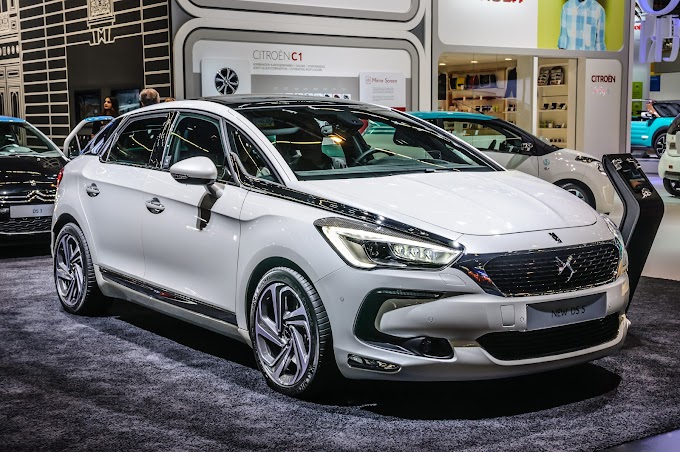Top Reasons to Consider an Electric Car for Your Next Vehicle
Introduction to Electric Cars
Electric cars, also known as electric vehicles (EVs), are gaining popularity as an environmentally friendly and cost-effective alternative to traditional gasoline-powered vehicles. Here are some key points to consider in the Introduction to Electric Cars:
- How They Work: Electric cars are powered by one or more electric motors, which are fueled by electricity stored in batteries. These batteries can be charged by plugging into an electrical outlet or dedicated charging stations.
- Environmental Benefits: One of the main reasons to consider an electric car is its positive impact on the environment. EVs produce zero tailpipe emissions, reducing air pollution and greenhouse gas emissions.
- Cost Savings: While the upfront cost of an electric car may be higher than a traditional vehicle, EV owners can enjoy significant savings in fuel and maintenance costs over the vehicle's lifetime.
- Driving Range: With advancements in battery technology, many electric cars now offer a sufficient driving range to meet the needs of most drivers. Long-distance travel is also becoming more feasible with the expansion of charging infrastructure.
- Government Incentives: To promote the adoption of electric vehicles, many governments offer incentives such as tax credits, rebates, or access to carpool lanes for EV owners.
- Technological Advancements: Electric cars are at the forefront of automotive innovation, featuring state-of-the-art technologies such as regenerative braking, energy-efficient climate control systems, and advanced driver-assistance systems.
In the following sections, we will delve deeper into the top reasons why you should consider an electric car for your next vehicle, exploring the environmental, economic, and practical benefits of making the switch to electric mobility.
The Environmental Impact of Electric Cars
Electric cars have a significantly lower environmental impact compared to traditional gasoline-powered vehicles. Here are some key points to consider:
Zero Emissions: Electric cars produce zero tailpipe emissions, which helps reduce air pollution and greenhouse gas emissions. This makes them an environmentally friendly choice for individuals looking to reduce their carbon footprint.
Reduced Dependence on Fossil Fuels: By switching to electric cars, drivers can help reduce the demand for fossil fuels such as gasoline. This can have a positive impact on the environment by decreasing the extraction and transportation of these finite resources.
Energy Efficiency: Electric cars are more energy-efficient than internal combustion engine vehicles. They convert a higher percentage of the energy from the grid into power to move the vehicle, resulting in less energy waste overall.
Renewable Energy Compatibility: Electric cars can be charged using electricity from renewable sources such as wind or solar power. This allows drivers to further reduce their environmental impact by using clean, sustainable energy to power their vehicles.
Battery Recycling: While batteries are a key component of electric cars, advancements in technology have made battery recycling processes more efficient. This helps reduce the environmental impact of electric car batteries and promotes the reuse of valuable materials.
Electric cars play a crucial role in mitigating the environmental impact of transportation. By choosing an electric vehicle for your next purchase, you can contribute to a more sustainable and eco-friendly future.
Advancements in Electric Car Technology
- Electric car technology has experienced significant advancements in recent years, making them a more viable option for consumers.
- The development of high-capacity batteries has significantly improved the driving range of electric cars, addressing one of the major concerns for potential buyers.
- Charging infrastructure has expanded rapidly, with more public charging stations available and faster charging times, enhancing the convenience of owning an electric vehicle.
- The integration of smart technology in electric cars allows for features such as remote monitoring, pre-conditioning of the interior, and even scheduled charging, providing a more integrated and user-friendly experience.
- Electric vehicles now offer impressive performance capabilities, with instant torque delivery and smooth acceleration, rivaling traditional internal combustion engine cars.
- Manufacturers are investing heavily in research and development, leading to innovations such as wireless charging and improved energy efficiency, driving the continuous improvement of electric car technology.
- The development of autonomous driving features in electric vehicles promises increased safety and convenience, further enhancing the appeal of owning an electric car.
- Electric car technology is becoming more sustainable, with advancements in recyclability of batteries and the use of renewable energy sources for charging, aligning with the growing focus on environmental concerns in the automotive industry.
The Role of Government in Promoting Electric Cars
The government plays a crucial role in promoting the adoption of electric cars through various incentives and policies.
Tax Credits: Governments around the world often offer tax credits to individuals purchasing electric vehicles, making them more financially attractive options. These credits can help offset the higher upfront cost of electric cars.
Charging Infrastructure: Government investment in charging infrastructure is essential for the widespread adoption of electric cars. By installing more charging stations in public places and offering incentives for home charging stations, the government can help alleviate range anxiety.
Emission Regulations: Stricter emission regulations imposed by governments push automakers to develop and produce more electric vehicles to meet environmental standards. This helps increase the availability and variety of electric cars on the market.
Research and Development Funding: Government funding for research and development in electric vehicle technology drives innovation and helps improve the performance and affordability of electric cars.
Public Awareness Campaigns: Governments can also play a role in promoting electric cars through public awareness campaigns, educating the public about the benefits of electric vehicles and dispelling myths about their limitations.
Incentives for Businesses: Providing incentives for businesses to transition to electric vehicle fleets can accelerate the adoption of electric cars on a larger scale and contribute to reducing emissions in the transportation sector.
By actively supporting the transition to electric vehicles, governments can help combat climate change, reduce reliance on fossil fuels, and create a cleaner and more sustainable transportation system for the future.
Challenges and Barriers for Electric Car Adoption
- Limited Range: One of the major challenges for electric car adoption is the limited driving range compared to traditional gasoline vehicles. Drivers may experience range anxiety, worrying about running out of charge before reaching their destination.
- Charging Infrastructure: The availability of charging stations is still a barrier for widespread electric car adoption. Some areas have limited charging stations, making it inconvenient for drivers to recharge their vehicles on the go.
- Charging Time: Charging an electric car can take significantly longer than filling up a gas tank. This extended charging time can be a barrier for individuals who are used to the convenience of quick refueling.
- Upfront Cost: Electric cars tend to have a higher upfront cost compared to traditional gasoline vehicles. This initial investment can deter some potential buyers from making the switch to an electric vehicle.
- Maintenance and Repairs: While electric cars typically have lower maintenance costs, finding a qualified technician to repair electric components can be a challenge in some areas. This can be a barrier for consumers concerned about vehicle upkeep.
- Battery Technology: The technology behind electric car batteries is continuously evolving. Some consumers may hesitate to invest in an electric vehicle due to concerns about battery longevity, performance in extreme weather conditions, and recycling processes.
These challenges and barriers play a role in the decision-making process for individuals considering transitioning to an electric car.
The Future of Electric Car Charging Infrastructure
- The rapid growth of electric vehicles (EVs) has spurred significant advancements in charging infrastructure to meet the needs of electric car owners.
- Public charging stations are becoming more prevalent in urban areas, along highways, and at popular destinations such as shopping centers and workplaces.
- Technology improvements are enhancing charging speed and efficiency, making it more convenient for EV drivers to recharge their vehicles.
- Initiatives are underway to increase the number of fast-charging stations, reducing charging times significantly compared to traditional home charging.
- Smart charging solutions are being developed to optimize charging schedules based on electricity rates, grid demand, and renewable energy availability.
- Collaborations between automakers, governments, and charging network providers are driving investments in expanding the charging network globally.
- Wireless charging technology is being explored as a potential future solution to make EV charging even more convenient and seamless.
- Battery swapping stations are being considered as a viable alternative to traditional charging, offering a quick and efficient way to replace a depleted battery with a fully charged one.
- The future of electric car charging infrastructure looks promising, with continued innovations and investments aimed at making EVs more accessible and convenient for consumers.
- As the EV market expands, the development of a robust and efficient charging network will be crucial in supporting the widespread adoption of electric vehicles.
Electric Cars and the Energy Grid
Electric cars play a crucial role in the integration of renewable energy sources into the energy grid. As more renewables like solar and wind power are added to the grid, electric vehicles provide a valuable storage solution by allowing excess energy to be stored in their batteries.
- Electric cars can help balance the load on the energy grid by charging during off-peak hours when demand is low and discharging or reducing charging during peak hours, thus contributing to grid stability.
- Vehicle-to-grid (V2G) technology enables electric cars to not only take energy from the grid but also return it, turning these vehicles into mobile energy storage units that can support the grid during times of high demand.
Moreover, the growing popularity of electric vehicles is driving innovation in smart grid technology. By communicating with the grid, electric cars can optimize charging times based on electricity rates, grid demand, and the availability of renewable energy.
- Vehicle-grid integration can lead to a more efficient use of renewable energy, reduce dependence on fossil fuels, and lower greenhouse gas emissions in the transportation sector.
- With the increasing adoption of electric cars, the energy grid has the potential to become more resilient, sustainable, and capable of accommodating a higher share of renewables.
By choosing an electric car for their next vehicle, consumers can actively participate in the transition towards a cleaner and more efficient energy system, combining the benefits of sustainable transportation and grid integration.
The Economics of Electric Cars
Lower Operating Costs: Electric cars are significantly cheaper to operate than traditional gasoline cars. With lower fuel costs and reduced maintenance expenses, electric cars can offer substantial savings over time.
Tax Incentives: Many governments offer tax incentives and rebates for purchasing electric vehicles, helping to offset the initial purchase price. These incentives can make electric cars a more affordable option for consumers.
Reduced Depreciation: Electric cars often have higher resale values compared to gasoline cars due to their increasing popularity and advancements in technology. This can result in lower depreciation costs for electric car owners.
Charging Cost Savings: Charging an electric car at home is usually cheaper than fueling a gasoline car at the pump. This can lead to significant savings for electric car owners over the long term.
Maintenance Savings: Electric cars have fewer moving parts than gasoline cars, which means they generally require less maintenance. This can result in lower maintenance costs and fewer visits to the mechanic for electric car owners.
Electric cars offer significant economic benefits, from lower operating costs and tax incentives to reduced depreciation and charging cost savings. By considering the economics of electric cars, consumers can make a financially wise choice for their next vehicle.
The Impact of Electric Cars on the Automotive Industry
- Electric cars have significantly influenced the automotive industry in recent years by encouraging innovation in vehicle technology.
- The shift towards electric cars has prompted traditional automakers to invest in electric vehicle development to meet consumer demand and regulatory requirements.
- This transition has led to advancements in battery technology, making electric cars more efficient and practical for everyday use.
- The growing market for electric cars has also created opportunities for new players in the automotive industry, stimulating competition and driving further innovation.
- Electric cars have pushed for the expansion of charging infrastructure, leading to the adoption of renewable energy sources in transportation.
- As electric cars become more mainstream, they are gradually reducing emissions and helping to combat climate change.
- The rise of electric cars has spurred research and development in autonomous driving technology, paving the way for a future of more sustainable and efficient transportation solutions.
- Overall, the impact of electric cars on the automotive industry has been transformative, encouraging a shift towards cleaner, more efficient vehicles and shaping the future of mobility.
Shaping the Future of Transportation
- Electric cars are paving the way for a more sustainable and environmentally friendly future.
- Governments around the world are offering incentives to encourage the adoption of electric vehicles.
- The advancements in technology are making electric cars more efficient and practical for everyday use.
- Electric vehicles help reduce greenhouse gas emissions and combat climate change.
- Charging infrastructure is expanding rapidly, making it more convenient to own an electric car.
- The overall cost of ownership for electric vehicles is becoming more competitive with traditional gas-powered cars.
- Electric cars are quieter and provide a smoother driving experience compared to traditional vehicles.
- The automotive industry is shifting towards electric vehicles as the demand for sustainable transportation grows.
- Electric cars offer various benefits, including lower maintenance costs and potential savings on fuel expenses.
- By choosing an electric car, individuals can contribute to reducing their carbon footprint and promoting a cleaner future for generations to come.

%20(2).png)
.png)

.png)
.png)
.png)
.png)
